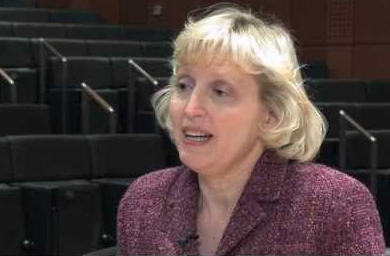
When the University of Michigan announced plans in late November to launch its first remote Executive MBA program more than 2,200 miles away from its home campus in Los Angeles, some B-school observers wondered why that market and why now.
The Southern California region already has at least a dozen existing MBA programs for managers and executives, including four that have won global rankings recognition. The current market leader, UCLA’s Anderson School Executive MBA, is even rated slightly higher than Michigan’s prestige program in Ann Arbor.
What’s more, Michigan’s Ross School of Business is moving in with the highest price tag of all, charging $136,000 for a 20-month program, some $22,000 more than the cost of the programs at UCLA or the University of Southern California’s Marshall School of Business and more than twice as much as San Diego State University charges for its Executive MBA..
The expansion, no less, comes at a time when fewer companies are agreeing to foot the bill for such programs. Only 27% of the executives in EMBA programs are now fully funded by their employers, down from 34% four years earlier, according to the Executive MBA Council.
But the decision to go ahead with the plan was a no-brainer to Alison Davis-Blake, who assumed the deanship of the Ross School last July. What she sees is a metro area that is the second largest in the U.S. behind only New York—and one that is three times the size of the school’s declining home market in Detroit. And it’s also an area with large numbers of mid-career managers and executives who lack an MBA degree on their resumes–the ideal demographic for a prestige business school.
Before deciding on Los Angeles, the Ross School studied several other city metro areas. “We considered what I call destination cities in the U.S. that would be large and have a strong mid-career population,” says Davis-Blake in an interview with Poets&Quants. “The market conditions and alumni made Los Angeles attractive. LA has a lot of young and mid-career executives at the right age, and we have a large number of Michigan alums who are eager to help us with this. It’s part of our broader effort to operate outside Ann Arbor.” Some 23,000 Michigan Wolverines live in Southern California.
Michigan’s West Coast venture follows the success of the University of Pennsylvania’s Wharton School program in San Francisco and Northwestern University’s Kellogg School of Management in Miami. With less than 200 executive MBA students, Wharton’s revenues from its San Francisco campus now exceed $15 million a year.
The Ross School began accepting applications for the West Coast program this month and will enter its inaugural class in August. Ross expects between 35 and 50 executives in its first class, which would give the school $4.8 million to $6.8 million in additional revenue. The classes will meet from Friday morning through Saturday afternoon once a month over a 20-month period at the ultra-swanky Beverly Wilshire Hotel in Beverly Hills. This is not your usual executive education facility, but a historic locale where the likes of Elvis Presley and Warren Beatty lived for several years.
The program will feature the school’s signature course, a so-called “Executive Multidisciplinary Action Project,” that brings together teams of students with companies in a four-month consulting project. At times, the school says, students in both the Ann Arbor and L.A. cohorts will convene in the same location and collaborate on coursework. The new dean is predicting that the Ross offering will become “the program of choice” for senior-level candidates with 10 to 15 years of work experience on the West Coast.
“Some question whether the market is big enough,” concedes Davis-Blake. “The truth is, we’re all competing right now anyway in the full-time MBA space. This is just a different point of competition. If San Francisco can support Stanford, Berkeley, Columbia and Wharton, I think Los Angeles can have another entrant. Judy Olian and I are still friends,” she joked, referring to the dean of UCLA’s Anderson School.
While acknowledging the strong competition, Dean Davis-Blake believes the Ross program will be positioned differently in the market. “We are bringing in a once-a-month format,” she says. “They (UCLA and USC) are in a twice-a-month format. We also have action-based learning and a multi-disciplinary approach. We have a different product to offer the market.”
She says the L.A. move is part of a broader strategy to increase the school’s educational footprint and expects to launch more programs, probably outside the U.S. “Not everyone who wants an EMBA is willing or able to come to a specific campus for their education,” Davis Blake says. “So we really felt it was important to offer a Michigan experience elsewhere.”
More locations for the program are possible in the near future. “We are looking at other locations,” the dean added. “They would probably be outside the U.S. We wanted to stage this in the right manner. The faculty had been talking about this for a number of years. One of the benefits of Los Angeles is that it allows us to get good experience with remote delivery without some of the complexity of operating a campus outside the U.S.”
Initially, the dean says, Ross will deliver exactly the same program in L.A. as it does in Ann Arbor, largely taught by the same faculty who will fly west to teach. “Our plan is to start out with the same core and as we get into it we might have some new targeted electives in L.A,.” says Davis-Blake. UCLA and USC, for example, have a strong focus on the entertainment industry. Michigan may well create electives to appeal to students in that industry.
DON’T MISS: THE BEST LOS ANGELES METRO EXECUTIVE MBA PROGRAMS or THE BEST CHICAGO METRO EXECUTIVE MBA PROGRAMS





Questions about this article? Email us or leave a comment below.